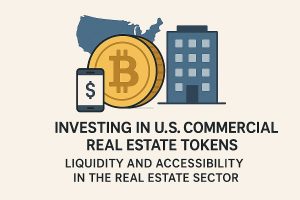Faith-based investing is increasingly capturing the attention of investors in the United States seeking portfolios that align with their moral values. This investment approach allows individuals to merge their religious beliefs with financial strategies, creating an impactful synergy between ethics and profitability. Investors are now more than ever interested in ensuring their investments follow their faith-based principles while still aiming for competitive returns.
As the demand for faith-based investing grows, so does the financial industry’s response. Investment firms are increasingly developing products tailored to these ethical guidelines, allowing for diversified portfolios that do not compromise on one’s beliefs. By adhering to religious principles, investors can feel empowered, knowing their finances reflect their values.
Understanding the principles of faith-based investing

Faith-based investing is grounded in the belief that financial decisions should reflect ethical and moral values derived from religious teachings. This can involve excluding certain industries, such as gambling or tobacco, from investment portfolios. Investors are increasingly seeking opportunities that support environmentally and socially responsible practices and that foster community development.
As the market evolves, investment strategies are becoming more sophisticated in accommodating these ethical mandates. Fund managers now leverage a mix of screening processes and active engagement with companies to ensure adherence to religious ethics. For example, Islamic finance prohibits investment in interest-bearing instruments, reflecting its commitment to ethical conduct.
Customizing a portfolio to meet religious beliefs
Constructing a faith-based investment portfolio requires a detailed understanding of one’s religious values and principles. Investors can start by identifying which sectors and practices align or clash with their ethics, utilizing tools that screen investments accordingly. By working with advisors specialized in faith-based strategies, individuals can create a portfolio that strictly observes their beliefs while seeking growth.
Additionally, investing in funds explicitly designed for religious compliance can simplify this process. These funds actively research and include companies that match specified ethical criteria, enabling more straightforward participation in faith-based investing. The result is a personalized investment plan that reflects both the investor’s moral preferences and financial goals, tangibly demonstrating their commitment to ethical investing.
The benefits and impact of faith-based investing
Faith-based investing doesn’t just benefit individual investors; it has a broader impact on society and the corporate world. By directing funds towards ethically aligned companies, investors promote positive social and environmental practices. This not only supports businesses that act responsibly but also encourages others to adopt similar standards to attract ethical capital.
Furthermore, often leads to greater investor satisfaction. Knowing their money is being used in ways that align with their beliefs provides peace of mind, strengthening the connection between personal values and financial practices. As more people pursue this type of investing, it could drive significant shifts towards corporate accountability and sustainability on a larger scale.
Steps to start with investiment
For those ready to embark on the journey of faith-based investing, a few initial steps can set a strong foundation. Beginning with thorough research on firms offering ethical investment options is crucial. This includes examining funds dedicated to faith-based principles and understanding what ethical guidelines they follow.
Consulting with a financial advisor who understands is also recommended. Advisors can provide insights into creating a diversified and ethically aligned portfolio, guiding investors on industry practices that resonate with their values. With careful planning and strategic choices, faith-based investing can provide both spiritual fulfillment and financial success.
Faith-based investing: aligning morals with markets
Faith-based investing presents a unique opportunity to harmonize personal beliefs with market participation, offering a profound synergy between spirituality and finance. This method proves individuals need not sacrifice ethics for economic gain, as portfolios can reflect both faith-driven values and an adaptable investment strategy.
The increase in demand for faith-driven financial products not only emphasizes personal conviction but also instigates positive change in the corporate landscape. Investors can influence broader business practices, pushing for ethical responsibility and sustainability. As more individuals recognize the potential, it promises an enriched future where values and markets coexist harmoniously.



